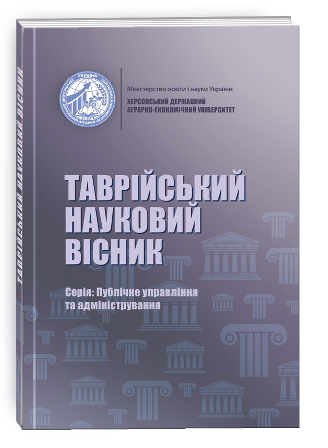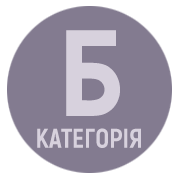DIGITAL INFORMATION LEAKS AS A THREAT TO NATIONAL SECURITY
DOI:
https://doi.org/10.32782/tnv-pub.2025.2.8Keywords:
digital leaks, email hacking, cyberattack, national security, phishingAbstract
The article is devoted to defining the features of the category of digital information leaks as a threat to the national security system. It is emphasized that hacking and leaking operations can be divided into two clear stages: obtaining data and content through cyberattacks (“hacking”) and their distribution using various strategies (“leaking”). Information leaks became especially popular during the decade of 2010–2020, when a series of significant cases occurred in the public environment. The article considers examples from the experience of other states. Particular attention in the study is paid to hacker interference in the electoral processes in the USA in 2016 and in France in 2017. In the first case, a similar hack of the Democratic National Committee’s mail led to the discrediting of the political force and defeat in the elections. In the second case, the political party En Marche was able to prove the falsification of the leaked information and win the elections. In addition to the specific cases, leaks such as The Drone Papers, Panama Papers and Panama Papers are also analyzed. The article focuses on identifying various motives associated with information leakage, specific practices or technologies of leaks. Thus, it is possible to identify the main ways to potentially combat information leaks, which may pose a potential threat to national security. First of all, public sector employees, representatives of different political forces should distinguish between personal and public mail, not using the same passwords, because, in the event of hacking an employee’s mail, criminals gain access to the conference facility of the workplace. In addition, trust plays an important role in the exchange of information via electronic means of communication – employees should know that access to their account should not be provided to technical support without proof of their participation in the organization. No less important is the fact that it is better not to send important information by mail at all.
References
Відомості про Професійні стандарти. URL: https://register.nqa.gov.ua/profstandarts?profession_id=523
Стандарт вищої освіти рівень вищої освіти перший (бакалаврський) рівень ступінь вищої освіти «Бакалавр» галузь знань 28 «Публічне управління та адміністрування». URL: https://mon.gov.ua/static-objects/mon/sites/1/vishcha-osvita/zatverdzeni%20standarty/12/21/281-Publ.upr.ta.administruvannya-bakalavr.21.01.22.pdf
Стрельбіцький М., Мазур В., Лемешко В. Протоколи обміну ‘агрегованої’ інформації в інформаційно–телекомунікаційній системі. Сучасні інформаційні технології у сфері безпеки та оборони. 2023. Вип. 46(1), с. 51–55.
Берназюк О.О. Електронне урядування як особлива форма публічного управління: поняття та проблеми запровадження. Наук. вісник Ужгород. нац. ун-ту. Серія Право. 2019. Вип. 55. Том 2. С. 32–35.
Кіпішинова О., Сметаніна Л. Цифровізація управління персоналом в органах державної влади. Актуальні проблеми державної служби. 2021. No 3 (84). С. 202–205.
Витік персональних даних в електронному урядуванні: реалії та проблеми державних вебсайтів і порталів. Публічне управління і адміністрування в Україні. 2020. № 20. С. 111–119.
Kilovaty, I. (2018). Doxfare: politically motivated leaks and the future of the norm on non-intervention in the era of weaponized information. Harv. Nat’l Sec. J., 9, 146.
Briant, E. L. (2023). Hack attacks. How cyber intimidation and conspiracy theories drive the spiral of “secrecy hacking”. In J. Steel & J. Petley (Eds.), The Routledge companion to freedom of expression and censorship (pp. 285–296).
Orban, F. (2024). Sowing the Seeds of Distrust? Foreign Cyber Interference in the French Presidential Election in 2017 and 2022. Trust under Threat, 157.
Downing, J., & Ahmed, W. (2019). # MacronLeaks as a “warning shot” for European democracies: challenges to election blackouts presented by social media and election meddling during the 2017 French presidential election. French Politics, 17, 257–278.
Bollmann, H. S., & Gibeon, G. (2022). The spread of hacked materials on Twitter: A threat to democracy? A case study of the 2017 Macron Leaks (Doctoral dissertation, Hertie School).
Barnes, J.E. (2021). Ex-Intelligence Analyst Is Sentenced for Leaking to a Reporter. The New York Times. URL: https://www.nytimes.com/2021/07/27/us/politics/daniel-hale-leaksentence.html.
Cabra, M. and Kissane, E. (2016). Wrangling 2.6TB of data: The people and the technology behind the Panama Papers. ICIJ.org. URL: https://www.icij.org/investigations/panamapapers/data-tech-team-icij/
Lee, M. (2020). Hack of 251 Law Enforcement Websites Exposes Personal Data of 700,000 Cops. The Intercept. URL: https://theintercept.com/2020/07/15/blueleaks-anonymous-ddoslaw-enforcement-hack/.
Woodall, A. (2018). Media capture in the era of megaleaks. Journalism, 19(8), 1182–1195.
United States Department of Justice. (2021). Former Intelligence Analyst Pleads Guilty to Disclosing Classified Information. URL: https://www.justice.gov/usaoedva/pr/former-intelligenceanalyst-pleads-guilty-disclosing-classified-information.
Beran, D. (2020). The Return of Anonymous. The Atlantic. URL: https://www.theatlantic.com/technology/archive/2020/08/hacker-group-anonymousreturns/615058/
Süddeutsche Zeitung. (2016). John Doe’s Manifesto. URL: https://panamapapers.sueddeutsche.de/articles/572c897a5632a39742ed34ef/
Di Salvo, P. (2024). A Typology of Digital Leaks as Journalistic Source Materials. In The Palgrave Handbook of Everyday Digital Life (pp. 469–488). Cham: Springer International Publishing.







